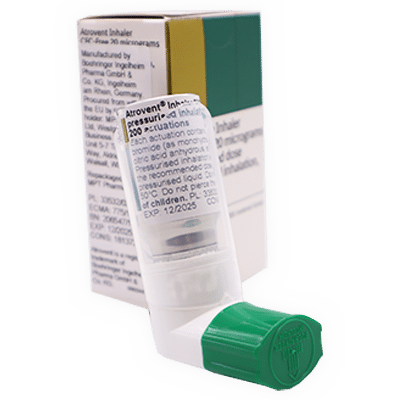The drug was a real salvation when I had a throat infection and other antibiotics did not help. It started to get better very quickly. The side effects were minimal - only mild nausea.

Erythromycin
- Quality products
- Support 24/7
- Fast delivery
What is it?
Erythromycin is an antibiotic that belongs to the group of macrolides. This medication is used to treat various infections caused by bacteria. Being a powerful tool for fighting germs, it can be prescribed for infections of various parts of the body, including the respiratory tract, skin, ears, and other organs. Erythromycin works by stopping the growth of bacteria, which allows the body to fight the infection more effectively. It is an acceptable alternative for patients who have allergic reactions to penicillin and other antibiotics.
Composition
The main active ingredient in Erythromycin is erythromycin itself. It acts as the main active ingredient that provides antibacterial action. This component is produced from specific bacteria that have the ability to interact with the bacterial ribosome, stopping the production of proteins necessary for bacterial growth.
- Erythromycin is the main component that inhibits bacterial growth.
- Lactose is responsible for improving the absorption of the drug and its dissolution in the stomach.
- Microcrystalline cellulose is used to ensure a stable tablet form.
- Magnesium stearate promotes easy swallowing of tablets and minimizes friction between tablets.
These ingredients are combined to create a stable and effective remedy that can quickly and reliably affect the infection. They also help minimize negative effects and improve the patients well-being during treatment.
How to use?
Proper use of Erythromycin helps ensure maximum effectiveness of the drug. It is recommended to take it exactly as prescribed by your doctor. This helps to avoid overdosing or underdosing on the drug, which can affect its effectiveness.
- Take Erythromycin with a glass of water each dose. This helps the tablet dissolve better and be absorbed into the body faster.
- The medication can be taken either on an empty stomach or during meals, allowing patients to choose the best regimen for them).
- Do not crush, crush, or open the slow-release or enteric-coated tablet. It is important to swallow it whole to ensure proper release of the drug into the body.
The procedure for taking it is simple, but requires attention and following the instructions to avoid possible complications and ensure the fastest possible recovery.
How does it work?
Erythromycin works by blocking the growth and reproduction of bacteria. It interferes with the process of protein synthesis in microorganisms, which makes them unable to continue to develop and spread. This action allows the bodys active immunity to fight the infection more effectively.
One of the features of Erythromycin is its interaction with bacterial ribosomes. It binds to them and prevents the formation of new bacterial cells, which in turn stops the infection and reduces its impact on the body. This makes the drug active not only for the treatment of existing infections, but also for preventing their spread.
The effectiveness of the drug is due to its ability to penetrate into various tissues and organs of the body, which allows you to treat a wide range of infections. This makes Erythromycin a convenient and universal remedy for the treatment of various bacterial diseases.
Indications
The conditions for which Erythromycin is recommended are varied. The drug is effective against many bacterial infections, and its use should be based on diagnostic evaluations.
- Respiratory tract infections, such as bronchitis or pneumonia.
- Skin and soft tissue infections, including furunculosis and impetigo.
- Ear infections, such as otitis media.
- Sexually transmitted infections caused by certain bacteria.
- Prophylaxis of infections during surgical interventions.
Erythromycin should be prescribed by a physician who can competently assess all the indications and individual characteristics of the patient.
Contraindications
Like any medication, Erythromycin has a number of contraindications. The product is not recommended for use in the following cases due to the potential risk to the patients health.
- History of allergic reactions to erythromycin or other macrolide antibiotics.
- Concomitant use of drugs such as cisapride and pimozide due to the risk of dangerous interactions.
- Liver disease, which may be aggravated by taking the drug.
- Myasthenia gravis requires caution when used due to possible worsening of symptoms.
When prescribing Erythromycin, the physician must take into account all the individual characteristics of the patient in order to avoid adverse outcomes.
Side effects
Although Erythromycin is effective in fighting infections, it can cause side effects. Some of these require immediate medical attention, while others may be milder and do not require specific treatment.
- Allergic reactions such as hives, difficulty breathing, or swelling of the face.
- Serious effects include chest pain, irregular heartbeat, weakness, or feeling faint.
- Common symptoms include nausea, upset stomach, loss of appetite, and changes in urine and skin color (jaundice).
- Milder reactions may include feelings of nausea, dizziness, or lightheadedness.
Monitoring symptoms and talking to your doctor can help minimize risks and ensure safe use of the drug.
Frequently asked questions
Erythromycin Reviews and Experiences
Treated a skin infection after minor surgery. Doctor recommended Erythromycin and I was surprised how quickly I started to see improvement. No negative reactions and skin healed beautifully.
I have a complicated relationship with antibiotics, but Erythromycin was an exception. I treated an ear infection and everything went well. The only thing I noticed was a little fatigue, but it quickly passed.









